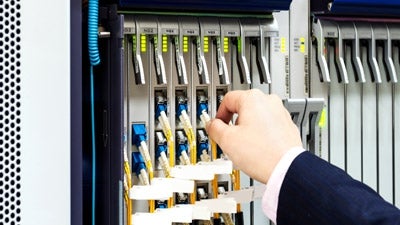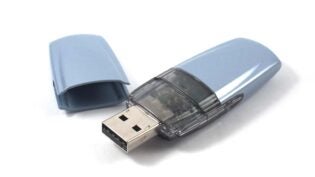
When you experience an IT system problem, few things cause more delays that badly planned or unstructured data center cabling. Many companies simply assume that their IT team or local electrician knows enough about the topic to manage the cabling, but the reality is that most companies would do better by hiring a network cabling service. If a company is considering fiber optic cabling, there are many qualified service providers. In fact, with fiber optic cabling, a fiber optic cable service provider is a necessity.
Whether you choose a network cabling service or do it yourself, here a few tips for data center cabling.
1. Buy the best quality cable you can afford
There are many types and variety of data center cabling systems available. Cable and connector materials vary, and the better materials cost more, as you would expect. Gold connectors have a high corrosion resistance, but cost more than other connectors do. If your cable will be in hard to reach locations or hostile environments, you should opt for gold.
2. Make sure your cable can handle your data volumes
You should avoid buying category 3, since it will probably not support your data needs. Category 5, 5E and 6 all vary in the amount of data they can carry, the speed of the data and the length of the span that a single cable can cover. If you and your IT team are not familiar with the capabilities of the various categories, you should seek the advice of a network cabling service who will be able to advise you on the best solution for your needs.
3. If you expect to grow, fiber optic may be worth the upfront expense
If you expect your enterprise to grow or if you handle large volumes of data or you need to cross long distances, fiber optic is the best option. A reputable fiber optic cable service provider can easily handle your project planning and the installation. Because of the vast distances many data center cabling projects cover, fiber optic cabling companies should be engaged right from the start because of the complex special requirements and delicacy of the fiber optic installation process.
4. Measure your spans and double check your plans
Cables become susceptible to distortion when they exceed the recommended length or span. Inexperienced IT teams may forget to include the entire length of the span, including the distance between building stories and around corners or obstructions as well as the linear distance. As a result, data quality and speed suffer. An experienced network cabling service will start with a detailed plan to ensure that the project specs call for the right cable quality.
5. Leave plenty of slack
You never know when you may need to reconfigure the office or move cable connections, so whenever possible leave plenty of slack in the cable to allow for changes. You don’t want to leave so much that it makes a mess of your cable room, but you don’t want cables stressed because they are too taut.
6. Label everything
When the IT system is down, your IT team should be able to go right to any cable and know exactly where it terminates. Every cable in your cable room should be clearly labeled so you can trace any faults. Your business can’t afford to waste time testing cables at random to find a fault when the system is down. Proper data center cabling by an experienced network cabling service would include this as a routine matter.
Regardless of your budget and your data center needs, most enterprises would benefit from a consultation with a fiber optic cable service provider or other network cabling service. Data center cabling, especially the fiber optic cabling your business depends on more often, is too important to leave to an inexperienced IT team.
This article was originally published by TTI Houston
Published: April 14, 2014
2059 Views
2059 Views












